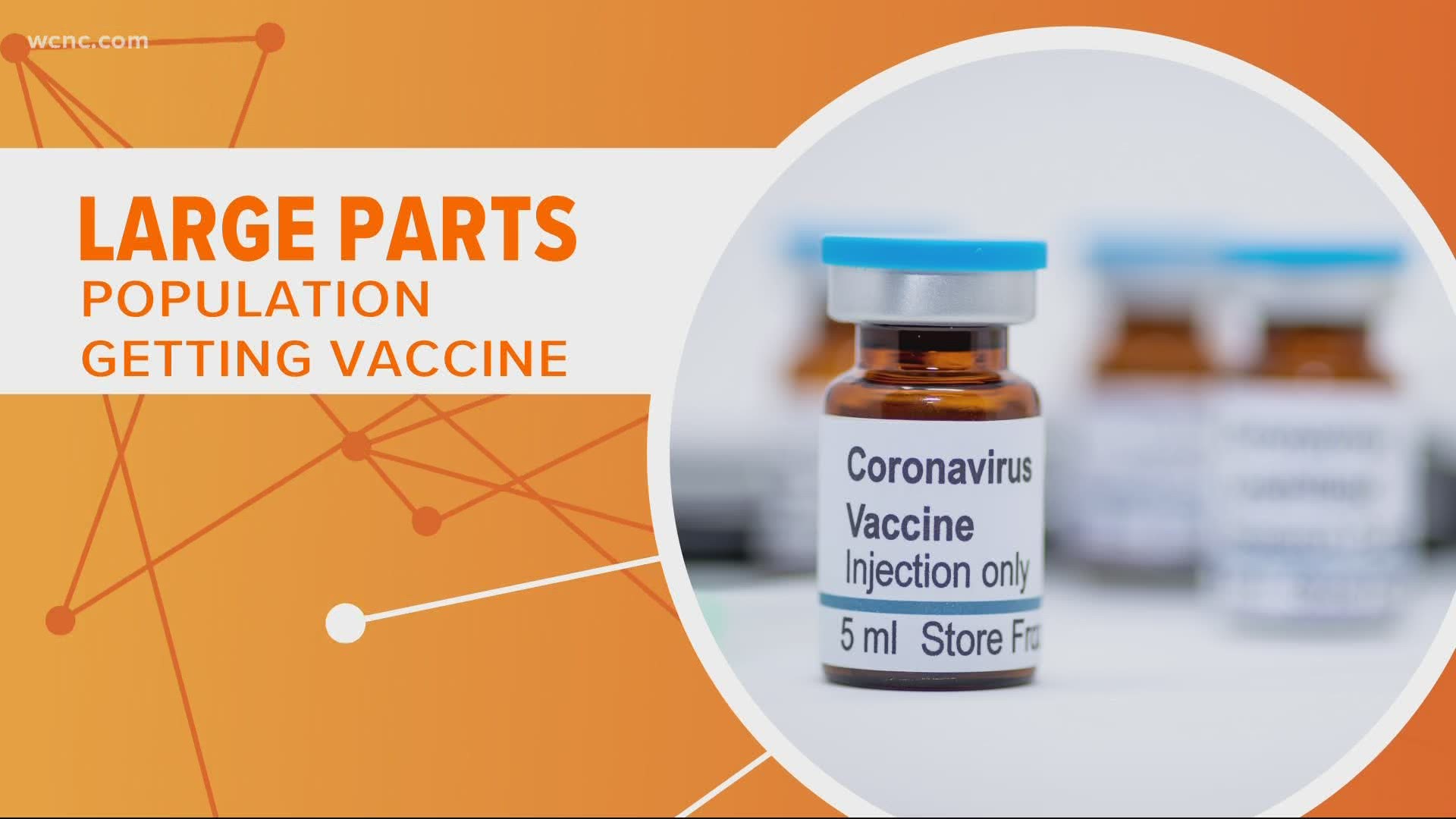CHARLOTTE, N.C. — Scientists are optimistic after early clinical trials of a COVID-19 vaccine showed promising results, but researchers say a lot still needs to happen before things get back to normal.
In fact, scientists are cautious to tell people that things won't seem "normal" again until there is a vaccine for coronavirus, and despite those promising trials, the biggest obstacles are still to come.
A COVID-19 vaccine will trigger an immune response in the human body, leaving people with anitbodies to the virus. But scientists still don't know if this means people can't get COVID-19 again, and that's a big hurdle. Scientists will also need to test tens of thousands of people and make sure there aren't any dangerous long-term side effects, and that takes time.
President Trump said Tuesday that a vaccine is coming "soon," but a timetable is still unknown.
“The vaccines are coming, and they're coming a lot sooner than anybody thought possible,” Trump promised anew.
As early as next week, the first possible U.S. vaccine is set to begin final-stage testing in a study of 30,000 people to see if it really is safe and effective. A few other vaccines have begun smaller late-stage studies in other countries, and in the U.S. a series of huge studies are planned to start each month through fall in hopes of, eventually, having several vaccines to use. Already, people can start signing up to volunteer for the different studies.
Even if a vaccine is proven safe and effective, getting it to people will be an even greater challenge. To prevent the virus from spreading, we'll have to build up herd immunity, in which a large enough population develops antibodies to the virus and becomes immune. Unfortunately, there simply won't be enough doses of a vaccine to go around. That's why experts say we're only about a third of the way to developing a widely accessible vaccine.

